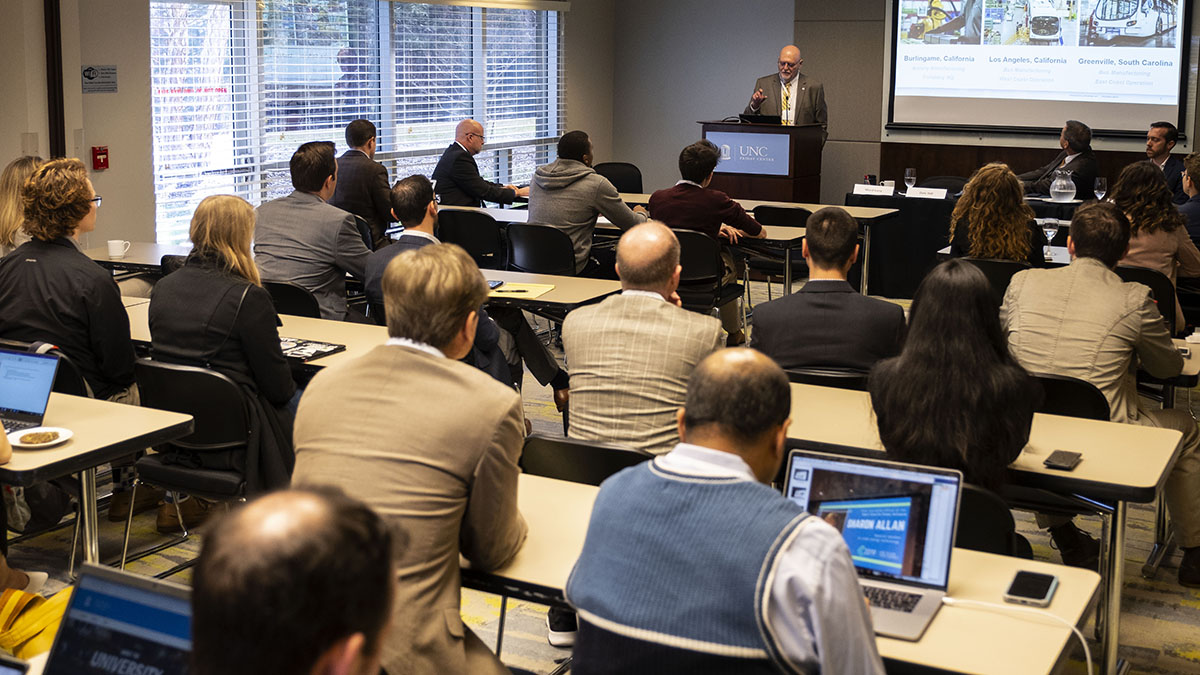Innovating toward a stronger economy — and a healthier planet
Carolina hosted its annual Clean Tech Summit, convening entrepreneurs, government leaders and researchers from across the country for discussions on the global clean technology economy.

Clean technology isn’t just good for the environment. It’s also a multibillion-dollar industry, and North Carolina is poised to reap the benefits.
That was one of the key messages at Carolina’s annual Clean Tech Summit. The two-day conference brought together entrepreneurs, students, government leaders and researchers from across the country to discuss the global clean technology economy.
“We often think we have a choice between improving the environment or the economy, but our takeaway is that you can have both,” said Greg Gangi, the associate director for clean technology and innovation at UNC’s Institute for the Environment and the conference’s founder. “It’s a win-win. You can innovate your way to a strong economy. If we want to create the jobs of the future, it’s in our interest to move in this direction.”
Interim Chancellor Kevin Guskiewicz said the Clean Tech Summit is a chance for the “best and brightest in academia, government and industry” to work together to propel positive change.
“I look forward to learning about the wonderful collaboration and brainstorming to come out of this summit,” Guskiewicz said. “You have the power to change the world, and we’re counting on you.”
Co-hosted by the UNC Institute for the Environment and the UNC Kenan-Flagler Business School, the annual event provided a platform to discuss the latest innovations, trends and challenges in the clean tech industry, as well as opportunities for North Carolina to lead the way.
Lectures covered topics ranging from coastal resilience to the agricultural challenges of the 21st century. The event also offered an opportunity for Carolina students to network with like-minded individuals and potential investors.
Michael Piehler, director of the Institute for the Environment, said North Carolina’s geographic diversity — including its 2,000 miles of coastline — presents unique challenges and opportunities for the state.
“[North Carolina] is, in some ways, a small version of the entire country. We go from the mountains to the sea, from urban areas to rural areas,” Piehler said at the conference’s opening on Feb. 28. “The goal of this summit is to harness the strengths of this region in the context of the state, never losing sight of the fact that this is a global challenge.”
As the industry grows, UNC-Chapel Hill will continue to play a critical role in bringing people to the table to come up with clean technology solutions, Gangi said.
“Carolina can use its convening power to bring other universities, industry and government professionals to the table to help realize this ambition,” he said. “The Summit just keeps growing, and we’re trying to make sure that it’s not just a once-a-year event, but that it actually begins to have even more of an impact and helps unleash the potential of our economy.”




